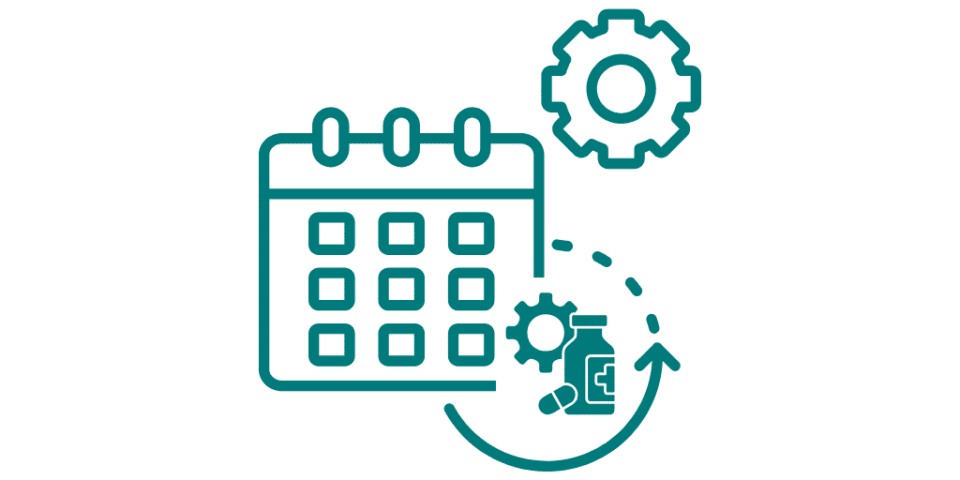Cost estimation in drug product manufacturing is far from straightforward. Raw materials, labor, equipment, and quality and regulatory compliance all contribute to a complex web of expenses. Striking the right balance between operational efficiency and budget constraints poses a significant challenge for pharmaceutical companies. This balancing act becomes even more crucial as production scales, regulatory demands increase, and advanced technologies enter the equation. Understanding these variables—and how to manage them—determines whether a manufacturing process thrives or stumbles under cost pressures.
Key Components of Drug Product Manufacturing Costs
- Raw Materials and Packaging: APIs (Active Pharmaceutical Ingredients) and excipients vary significantly in price depending on their source, complexity, and purity. Packaging adds to this cost, particularly for products requiring specialized containers and storage conditions.
- Labor: According to industry data, labor costs can comprise 10-15% of the total manufacturing cost.
- Equipment and Facility Maintenance: The sophisticated equipment necessary for modern pharmaceutical manufacturing requires significant capital investment. Additionally, maintaining facilities compliant with GMP (Good Manufacturing Practices) standards introduces ongoing operational costs, typically around 10-20% of total costs.
- Quality Control and Assurance: This involves rigorous testing and validation processes that contribute to both the direct cost (such as testing reagents) and indirect costs (like the time taken for product release and approval).
- Overhead Expenses: These often account for 15-20% of total costs depending on the size and scale of the operation.
Challenges in Estimating Costs
Drug product manufacturing cost estimation is fraught with challenges. Variations in raw material prices due to supply chain disruptions or geopolitical factors can introduce volatility. Additionally, predicting clinical trial outcomes and adjusting production capacity accordingly is difficult—an issue exacerbated by
the fact that only 12% of biopharma candidates successfully move from Phase I trials to market. Other complications arise from technological risks. Investing in new production technology can result in unexpected costs if integration challenges occur, or if the technology fails to deliver the promised efficiencies.
How CDMOs Reduce Costs and DS InPharmatics Adds Strategic Value
Given these complexities, pharmaceutical companies often turn to contract development and manufacturing organizations (CDMOs). CDMOs provide flexible, scalable solutions to manage production, offering specialized expertise in process development, and manufacturing technologies. This can lead to substantial cost savings, particularly for small- to mid-sized companies that may not have the capital to invest in large-scale manufacturing infrastructure upfront.
However, to fully capitalize on this model, companies may want to work with consultants like DS InPharmatics (DSI), who can navigate these partnerships effectively and optimize every aspect of the process including regulatory navigation.
CDMO Cost-Saving Strategies and DSI’s Expert Optimization
While CDMOs inherently provide cost savings by leveraging economies of scale and shared resources, DSI enhances these benefits with a tailored approach to cost optimization. Our deep understanding of Chemistry, Manufacturing, and Controls (CMC) allows pharmaceutical companies to not only save on manufacturing but also avoid hidden costs such as regulatory delays and inefficient processes. Our CMC consulting services ensure that manufacturing processes are efficient and scalable right from the beginning. By identifying potential issues early, we help companies avoid costly ,redevelopment and production delays, along with quality and compliance risks. Our consultants work directly with CDMOs to refine every aspect of the production process, ensuring that each phase—from DS manufacturing to formulation and onto final packaging—meets both regulatory standards and budgetary constraints.
With expertise in managing submissions and preparing for inspections, our team also reduces the likelihood of costly delays or rejections, ensuring that the manufacturing process continues without interruption. Our involvement in GMP compliance audits also helps companies steer clear of compliance issues, which can lead to expensive recalls or fines.
Flexibility and Scalability: Ensuring a Smooth Transition
CDMOs provide flexibility by allowing companies to scale production according to market demand. However, moving from small-scale production to commercial volumes introduces significant challenges. This is where DSI’s process development and scale-up expertise becomes invaluable.
Scaling up a process involves more than just increasing the volume—it requires selecting the right equipment, optimizing process parameters, and ensuring quality at every step. DSI helps companies navigate this complex process by selecting scalable, efficient processes that work seamlessly in a large-scale environment. We manage the transition to full-scale production, ensuring that companies avoid costly setbacks such as the choice of inadequate equipment or inconsistent product quality.
Ensuring Compliance Without Overhead
Navigating the regulatory landscape can feel daunting when outsourcing to CDMOs, but we bring a significant advantage with our regulatory expertise. While CDMOs spread compliance costs across clients, we add value by offering detailed guidance that streamlines approval processes. Whether you need help with submissions or inspection preparation, our experts ensure every regulatory step is handled with precision. This proactive approach reduces the risk of non-compliance and costly delays, helping you move products to market faster and more efficiently.
How DS InPharmatics Maximizes CDMO Value
At DS InPharmatics, we don’t just reduce drug manufacturing costs—we transform how companies collaborate with CDMOs. By integrating CMC consulting, quality and regulatory strategy, and process development, we drive faster, more efficient production while keeping quality and regulatory standards in check. For pharmaceutical companies looking to maximize returns on their CDMO partnerships, we provide expert guidance, ensuring that every step from process to market happens efficiently and affordably.
References & Further Reading
- Wim Celen, Gian-Carlo Walker, Surbhi Jain, and Arya Taupin. A Strategic Approach to Cost in Biopharma. BCG. Available at: https://www.bcg.com/publications/2023/biopharma-manufacturing-cost-reduction
- Patricio Ledesma. How Much Does it Cost to Manufacture a Drug for a Clinical Trial? Sofpromed. Available at: https://www.sofpromed.com/how-much-does-it-cost-to-manufacture-a-drug-for-a-clinical-trial
- Farid SS, Baron M, Stamatis C, Nie W, Coffman J. Benchmarking biopharmaceutical process development and manufacturing cost contributions to R&D. MAbs. 2020 Jan-Dec;12(1):1754999. doi: 10.1080/19420862.2020.1754999. PMID: 32449439; PMCID: PMC7531566.





